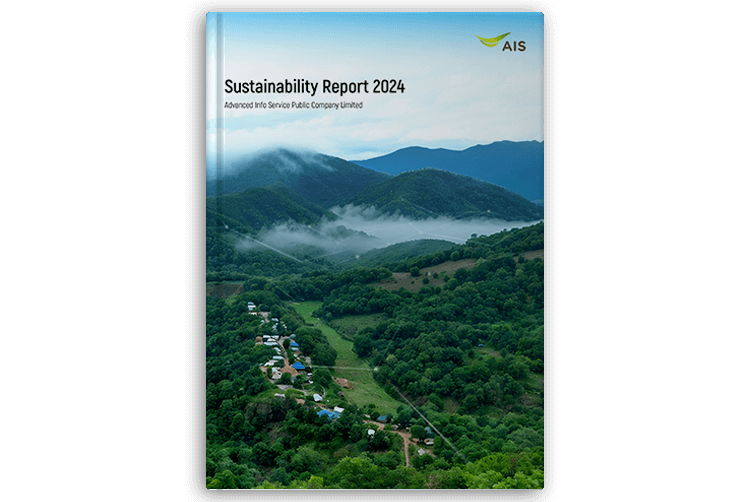Fast-changing technology has resulted in the frequent replacement of equipment to keep up with technology, inevitably adding to the amount of e-waste every year. AIS is dedicated to the correct management of environmentally hazardous waste resulting from its operations. Furthermore, this presents a business opportunity for AIS to collaborate with partners in offering environmentally responsible products and services to customers, thereby enhancing its image as a sustainable business leader. Such efforts not only foster customer confidence and trust in AIS's products and services but also contribute to building a sustainable business reputation.

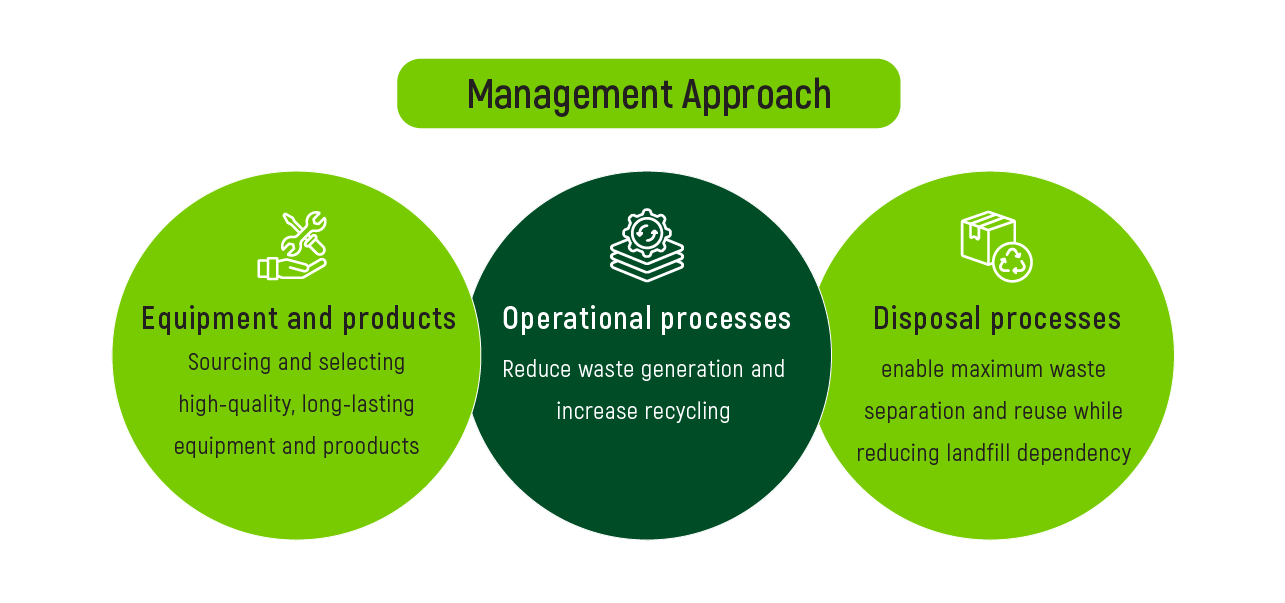
Green Procurement
AIS has established the "Green Procurement Policy" to optimize resource and energy efficiency. The policy prioritizes avoiding single-use disposable products, encouraging reusable or long-lasting raw materials and packaging, and procuring energy-efficient, water-saving, and non-toxic products. Additionally, it encourages the adoption of clean technology and non-polluting fuels.
Operations Waste Management
AIS manages electronic waste generated from its business operations, aiming to minimize its environmental impact throughout the entire lifecycle. This includes selecting licensed waste disposal vendors approved by relevant authorities and monitoring the disposal process from beginning to ending, ensuring proper disposal at designated waste disposal sites. In 2024, all electronic waste generated from business operations was properly disposed of without landfilling.
Office Waste Management
AIS provides waste segregation areas with clearly labeled bins for sorting into 4 categories: 1) General waste, 2) Recycle waste, 3) Food waste, and 4) Hazardous waste. This facilitates convenient waste sorting by employees from the source, allowing segregated waste to be properly recycled or disposed.
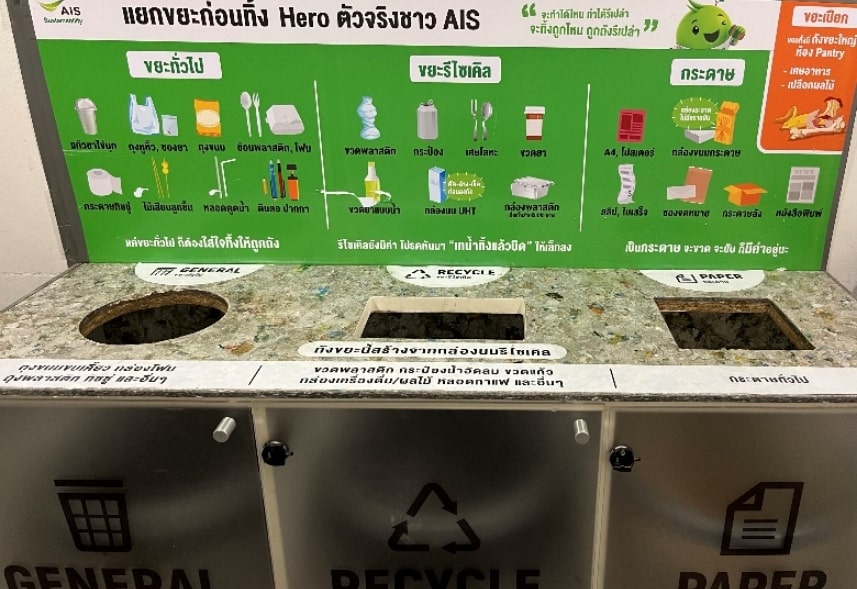
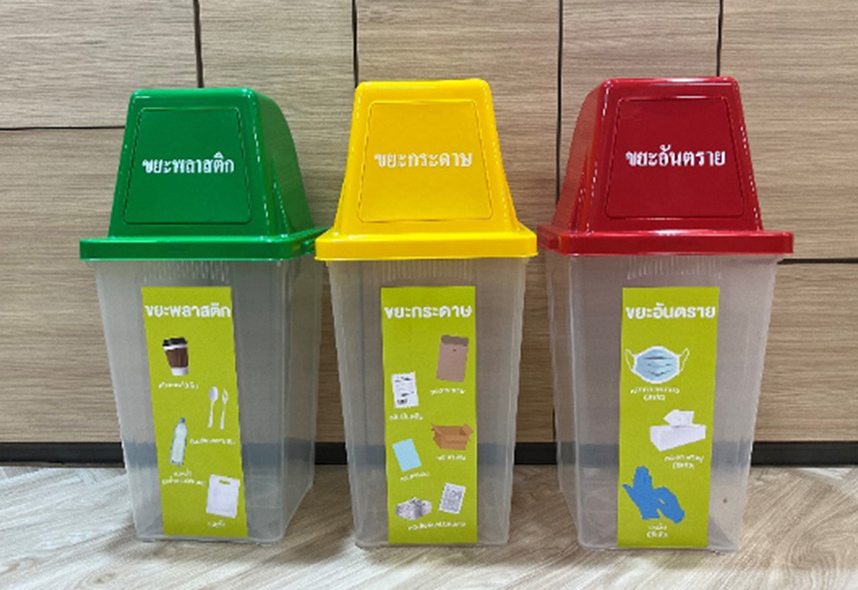
The AIS Contact Center Development & Training Arena in Nakhon Ratchasima Province has implemented a project to convert food waste into organic fertilizer, effectively reducing approximately 12 tons of waste generated from food waste.
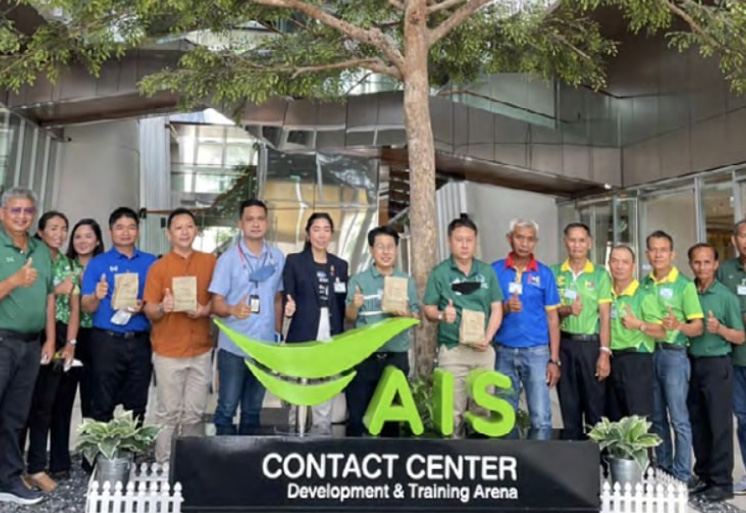
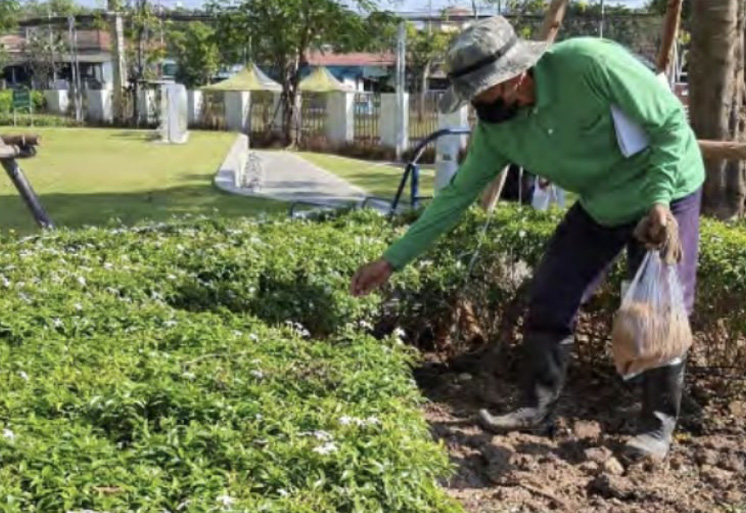
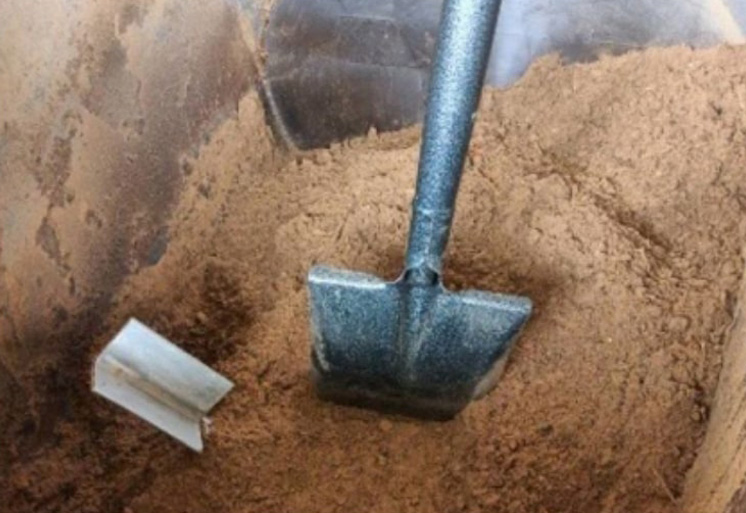
Thais Say No to E-waste (HUB of E-waste)
AIS continues to implement the "Thais Say No to E-waste" project and strengthen its role as the HUB of E-Waste, an intelligent electronic waste management center. The company focuses on raising awareness of e-waste management, expanding convenient disposal points, and conducting special marketing campaigns. Currently, AIS collaborates with a network of over 235 organizations, expanding e-waste collection points to more than 2,700 nationwide. To date, over 171,811 e-waste items have been collected and disposed of without landfilling (Zero landfill).
Access is available via the following link: Click here
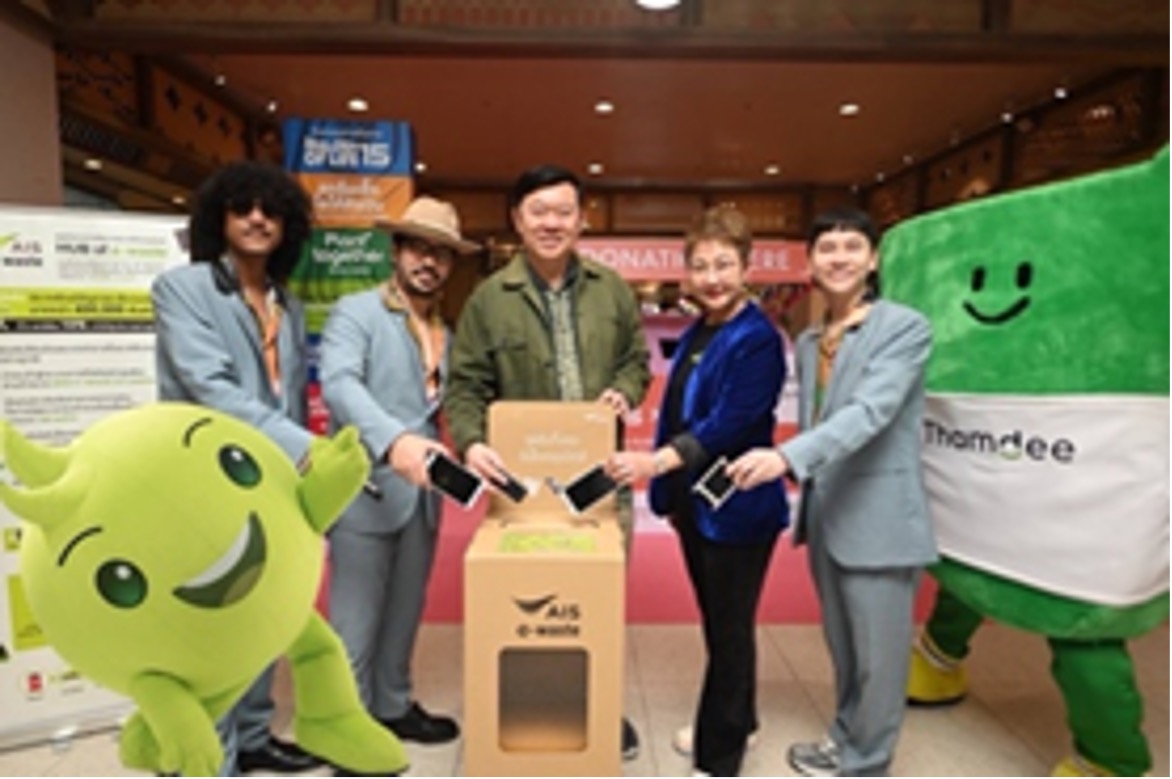


AIS HUB of E-waste
• HUB of Knowledge: A knowledge center that gathers information, articles, and research on the environment and e-waste
• HUB of Community: The central hub of the Green Community network is dedicated to creating environmental awareness among the community and fostering participation in e-waste management. It also serves as a platform for the exchange of ideas on addressing e-waste challenges, fostering environmental collaboration among diverse groups.
• HUB of Drop Points: A collaborative hub designed to expand e-waste drop-off locations to 2,700 drop points nationwide.
• HUB of Transportation: A center for managing e-waste in collaboration with Thailand Post, receiving e-waste and tracking its status through blockchain technology, using the E-Waste + application.
• HUB of Circular: The center deals with the management and recycling of e-waste in cooperation with Waste Management Siam Co., Ltd (WMS) with the goal of proper waste management without resorting to landfill or sending zero e-waste to landfill.
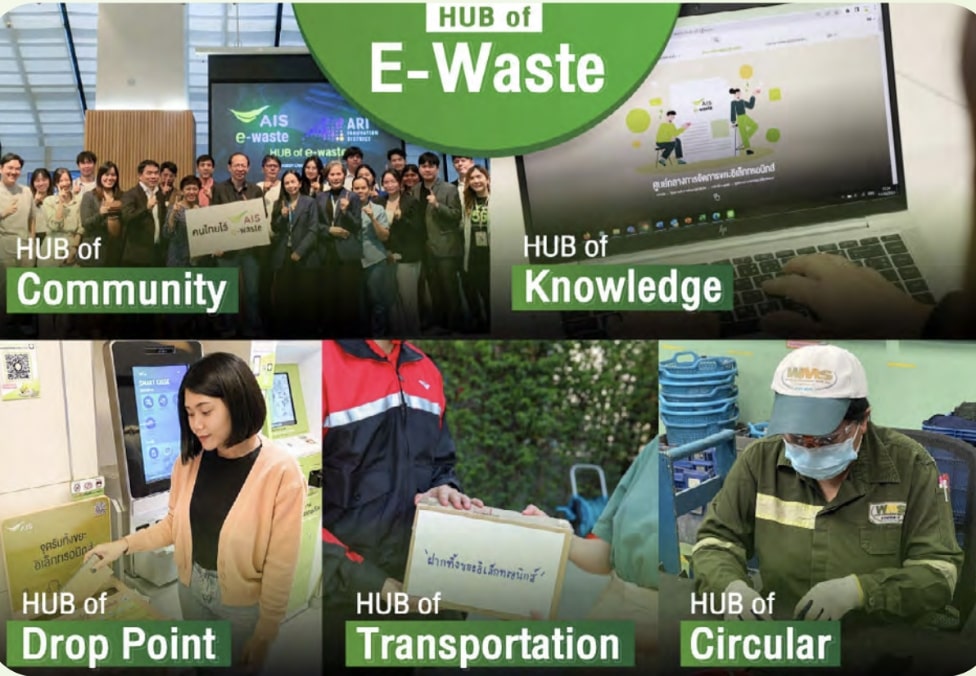
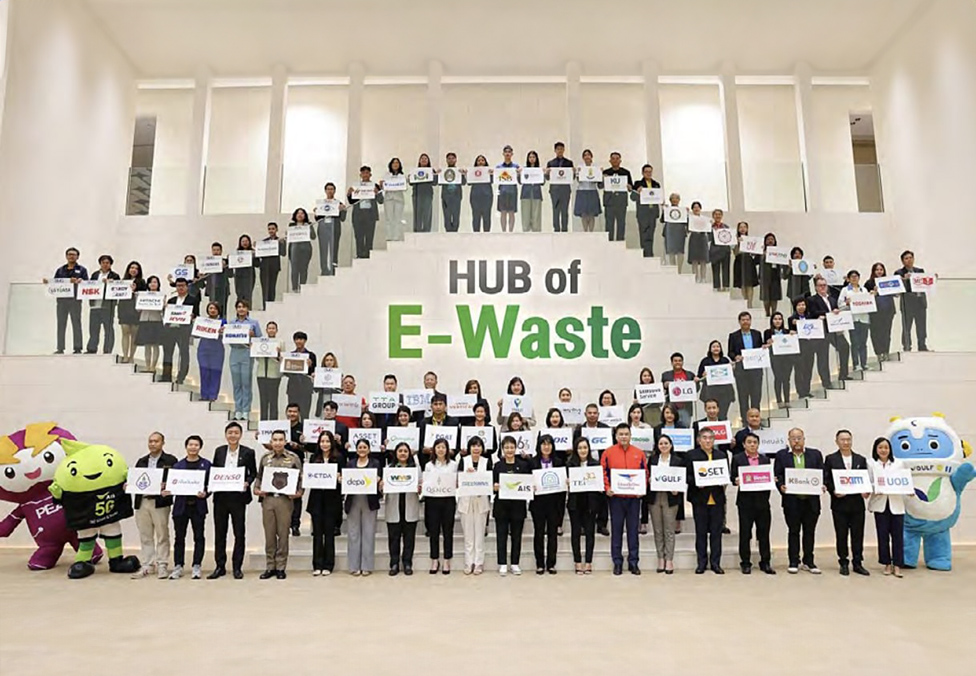
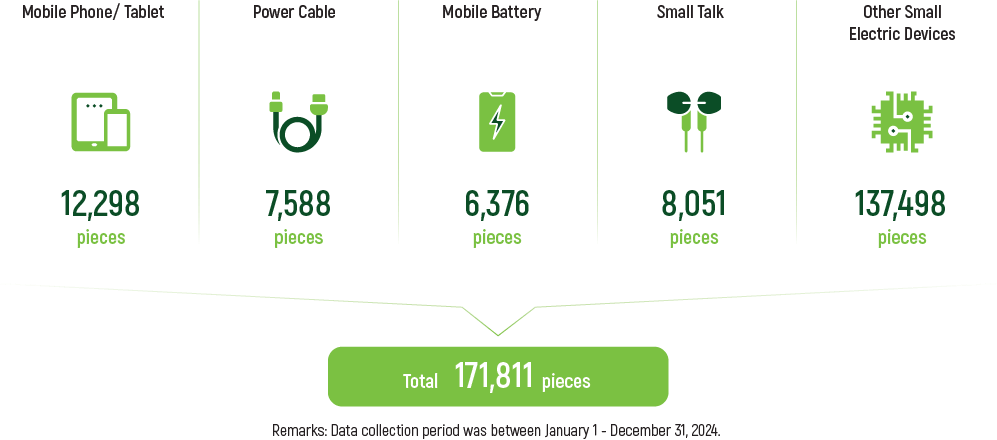
Performance Table
| Topic | Unit | 2021 | 2022 | 2023 | 2024 | Target 2024 |
|---|---|---|---|---|---|---|
| Total Waste generated | Tons | 183 | 1,277 | 2,927 | 1,687 | |
|
Total waste diverted from disposal
|
Tons | 147 | 1,094 | 2,570 | 1,134 | |
|
Total waste directed to disposal
|
Tons | 36 | 184 | 357 | 553 | 578 |
Information concerning the “Waste Management“can be found in the 2024 Sustainability Report.

